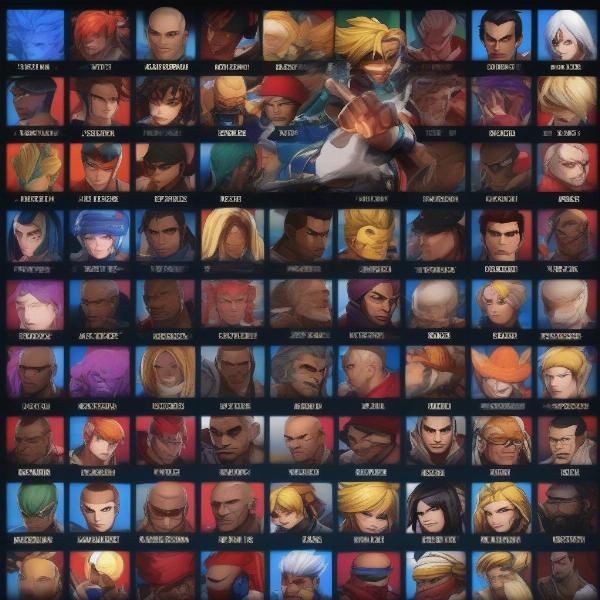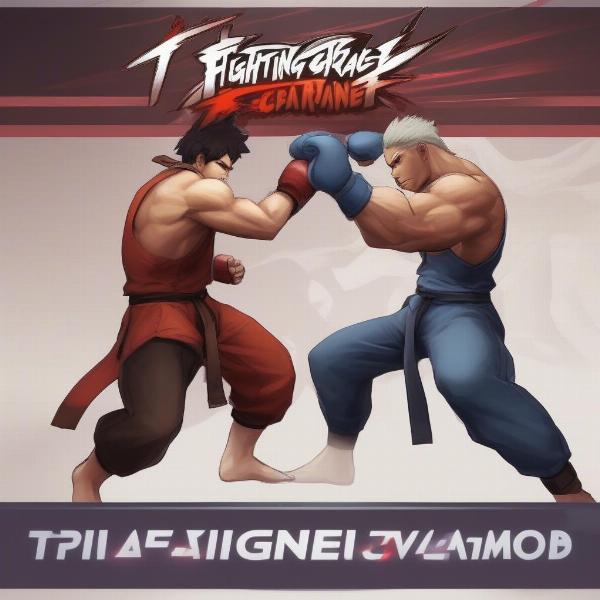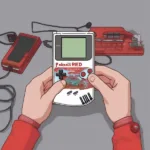Can I play fighting games with self-esteem issues? Absolutely! Many people enjoy fighting games regardless of their self-esteem. This article explores the relationship between self-esteem and fighting games, offering advice on how to navigate the competitive world of digital combat without letting it negatively impact your self-worth.
Does Playing Fighting Games Affect Self-Esteem?
Fighting games, by their very nature, are competitive. Winning feels great, but losing can be tough. This competitive aspect can impact self-esteem, especially for those already struggling with feelings of inadequacy. It’s important to understand that your performance in a video game doesn’t define your worth as a person.
The Impact of Losing
Losing repeatedly can trigger negative self-talk and reinforce existing self-esteem issues. You might start questioning your abilities, feeling inadequate, or even experiencing anxiety about playing. This is especially true if you tie your self-worth to your gaming performance.
The Impact of Winning
Winning, on the other hand, can provide a temporary boost to self-esteem. The feeling of accomplishment and the validation from others can be rewarding. However, relying solely on winning to feel good about yourself can be a slippery slope. What happens when the wins stop coming?
Finding a Healthy Balance
The key to enjoying fighting games with self-esteem issues is finding a healthy balance. Focus on the fun aspects of the game, like learning new techniques, experimenting with different characters, and connecting with other players. Don’t let the pressure to win consume you.
 Choosing a fighting game character
Choosing a fighting game character
Tips for Playing Fighting Games With Self-Esteem Issues
Navigating the world of fighting games can be challenging when you have self-esteem issues. Here are some tips to help you enjoy the experience without letting it negatively impact your self-worth:
- Separate Your Self-Worth From Your Gaming Performance: Remember that your skills in a video game don’t define you as a person. You are valuable and worthy regardless of your win-loss ratio.
- Focus on the Fun: Remind yourself why you started playing in the first place. Enjoy the thrill of the combat, the satisfaction of mastering a combo, and the camaraderie of the community.
- Set Realistic Expectations: Don’t expect to become a pro overnight. Learning takes time and effort. Celebrate small victories and don’t get discouraged by setbacks.
- Practice Self-Compassion: Be kind to yourself, especially after a loss. Avoid negative self-talk and focus on what you can learn from the experience.
- Take Breaks: If you find yourself getting frustrated or anxious, step away from the game for a while. Take a walk, listen to music, or do something else you enjoy.
- Find a Supportive Community: Surround yourself with positive and encouraging players. Avoid toxic communities that focus solely on winning and ranking.
- Seek Professional Help: If your self-esteem issues are significantly impacting your life, consider seeking professional help from a therapist or counselor.
 Connecting with other players in a fighting game forum
Connecting with other players in a fighting game forum
Building Confidence in Fighting Games
Building confidence in fighting games is a gradual process. Here’s how to approach it:
Focus on Improvement, Not Perfection
Striving for perfection can be detrimental to self-esteem. Instead, focus on making small, incremental improvements. Track your progress and celebrate your achievements, no matter how small.
Embrace the Learning Process
Fighting games are complex. There’s always something new to learn, a new technique to master, or a new strategy to explore. Embrace the learning process and enjoy the journey of becoming a better player.
“Focusing on the process of improvement, rather than solely on winning or losing, is crucial for maintaining a healthy relationship with fighting games,” says Dr. Sarah Chen, a psychologist specializing in gaming and mental health. “This allows players to derive enjoyment from the game itself, regardless of the outcome of individual matches.”
 Practicing combos in a fighting game's training mode
Practicing combos in a fighting game's training mode
Beyond the Game: Self-Esteem in Everyday Life
While this article focuses on fighting games, the principles discussed can be applied to other areas of your life. Building self-esteem is a journey, not a destination.
Cultivating Self-Compassion
Practicing self-compassion is essential for building self-esteem. Treat yourself with the same kindness and understanding that you would offer a friend.
Setting Realistic Goals
Setting realistic goals and celebrating small victories can help you build confidence and feel good about yourself. Remember that progress, not perfection, is the key.
“Remember that your self-worth isn’t tied to your performance in any one area of your life, including gaming,” adds Dr. Chen. “Cultivating self-compassion and focusing on personal growth are essential for building lasting self-esteem.”
Conclusion
Can I Play Fighting Games With Self Esteem Issues? Yes, you can! Remember that enjoying fighting games and having a healthy self-esteem are not mutually exclusive. By focusing on the fun aspects of the game, setting realistic expectations, and practicing self-compassion, you can navigate the competitive world of digital combat without letting it negatively impact your self-worth.
FAQ
- Do fighting games cause low self-esteem? Not directly, but they can exacerbate existing issues if you tie your self-worth to your performance.
- How can I stop feeling bad after losing in a fighting game? Practice self-compassion, focus on what you learned, and remember that it’s just a game.
- Are there any benefits to playing fighting games for self-esteem? Winning can provide a temporary boost, but the real benefit comes from mastering new skills and connecting with others.
- Should I avoid playing fighting games if I have self-esteem issues? Not necessarily. Finding a healthy balance and focusing on the fun aspects can be beneficial.
- What if I feel anxious about playing fighting games? Take breaks, practice relaxation techniques, and consider seeking professional help if needed.
- How can I find a supportive fighting game community? Look for online forums and groups that focus on learning and positive interaction.
- Is it okay to take breaks from fighting games? Absolutely! Taking breaks can help you maintain a healthy balance and prevent burnout.

